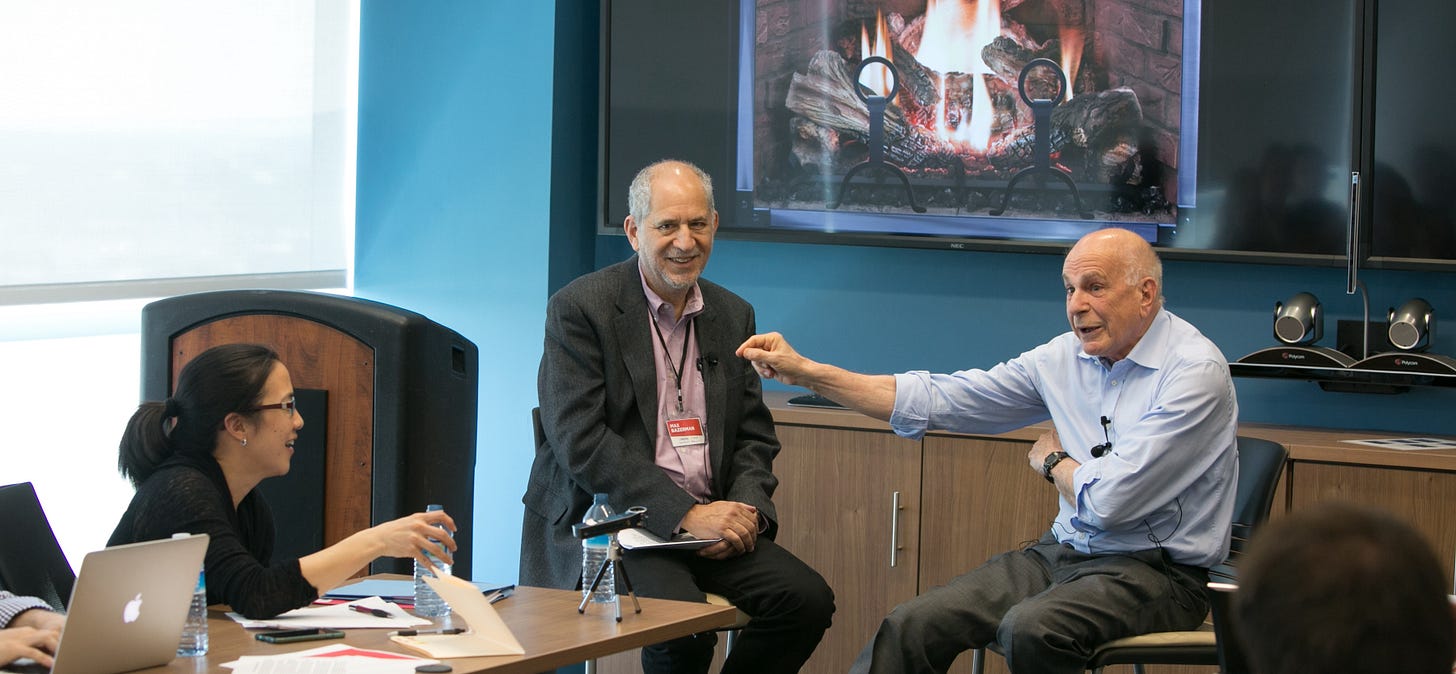Q&A with BCFG Team Scientist Heather Royer
UCSB Professor Heather Royer shares how to promote healthy behaviors
In this newsletter, we’re featuring a new Q&A with Team Scientist Heather Royer about her work on encouraging healthy behaviors. We’re also taking space to remember and honor Nobel Laureate and famed behavioral scientist Daniel Kahneman’s incredible legacy.
Q&A with Team Scientist Heather Royer
Heather Royer is a Professor of Economics at the University of California at Santa Barbara. She is also a Co-Editor of the American Economic Journal: Economic Policy, a Research Associate at the National Bureau of Economic Research, a Research Fellow at the IZA Institute for Labor Economics, and has a passion for endurance sports.
BCFG: You’ve conducted a number of exciting experiments on incentivizing people to engage in healthy behaviors. Based on that research, what would you encourage organizations to do to encourage healthier behaviors among their employees?
Heather: Not surprisingly, money works well in incentivizing people to promote healthy behaviors like exercise. However, pitching the same program over and over (e.g., $5/visit to go to the gym) can dull participants’ interest. Instead of offering the same monetary incentive repeatedly, I would encourage companies to add novelty to their program to keep the program exciting and fresh.
BCFG: Could you describe your favorite research finding that pertains to health behavior change from the last several years and why you think it’s important?
Heather: Engaging people across all levels of interest poses a challenge for wellness incentives. An incentive that works well for “gym rats” may flounder for someone who has never been to the gym. If incentives can be personalized, then incentives may encourage all. Some recent work provides encouraging results on personalization.
Rebecca Dizon Ross and Ariel Zucker in an interesting and exciting working paper entitled “Mechanism Design for Personalized Policy: A Field Experiment Incentivizing Exercise” run a randomized-controlled trial in India studying the personalization of incentives. They randomize participants into treatments with different walking goals (e.g., 10,000 steps, 12,000 steps, or 14,000 steps) versus a treatment where individuals can choose their step goal. Step counts are highest under the choice treatment and the cost per participant is comparable to that of the fixed step target treatments. This study demonstrates the potential promise of personalization of incentive schemes.
BCFG: We’re inspired by your personal passion for participating in endurance sports. Do you use any tips and tricks from your own research—or behavioral science more generally—to help improve your training?
Heather: Working on the behavioral side of financial wellness incentives has made me more aware of my tendency to procrastinate regarding exercise. I will start the day with the intention of exercising (I’m not a morning person!). Then I reach the end of the day and I decide that today is not the day. Knowing this, I often commit myself to attending an exercise class or swimming practice at a particular time.
Many thanks to Heather Royer for sharing her expertise with BCFG!
Team Scientist Nicholas Christakis Elected to the National Academy of Sciences
Congratulations to Nicholas Christakis for being recognized by the National Academy of Sciences for his “distinguished and continued achievements in original research.” He is the Sterling Professor of Social and Natural Science at Yale University, where he combines his training as a social scientist and physician to study social networks, biology, and health.
BCFG Team Scientists in the News
Great Online Dating Profiles Emphasize Knowing The Other Person, Research Suggests, featuring Juliana Schroeder and Ayelet Fishbach, Forbes
The Secret to a Sustainable Workout Habit, featuring Kevin Volpp, The New York Times
When Patients Do Their Own Research, featuring Emily Oster, The Atlantic
The Research-Backed Benefits of Daily Rituals, by Michael Norton, Harvard Business Review
Spotlighted Podcasts
Innovation 2.0: Multiplying the Growth Mindset, featuring Mary Murphy, Hidden Brain
Recipe for Success, by Katy Milkman featuring Michele Gelfand, Choiceology
Skills Development, featuring Jim Heckman, The Economics of Flourishing
The Social Etiquette of Lending Money, featuring Wendy De La Rosa, Life Kit
In Memoriam: Daniel Kahneman
Nobel Laureate and beloved behavioral scientist Daniel Kahneman passed away on March 27, 2024 at 90 years of age.
BCFG’s Co-Directors Angela Duckworth and Katy Milkman shared their reflections on the incredible impact of Danny’s work and its foundational importance to the field of behavioral science on Studio 2 from PBS and in Behavioral Scientist’s Mosaic of Memories and Lessons. Below are two of their reflections:
“One evening, more than twenty years ago [after helping Dr. Kahneman find his suitcase]… I thought to myself, Oh, it’s possible to be a world-famous genius—the most recently anointed Nobel laureate in economics, among other honors—and interact with anybody and everybody with utmost respect and dignity, no matter who they are. In the years that followed, I got to know Danny Kahneman much better, and when I did, that view was only confirmed. Confirmation bias? Halo effect? No and no. What then? Character. The world is mourning the loss of Danny Kahneman the genius, as we should, but I am missing Danny Kahneman the person.” - Angela Duckworth
“I also vividly recall talking with Danny about his experience winning the Nobel Prize. He explained to me that the best thing about winning it, by far, was how happy it made all the people around him—even his casual acquaintances. He said their joy was by far his greatest source of delight; it caught him by surprise but was truly wonderful.” - Katy Milkman
BCFG is grateful that Danny shared some time, wisdom, and joy with us during our first conference. Along with the entire field of behavioral science, we would not exist without Danny’s incredible contributions.









